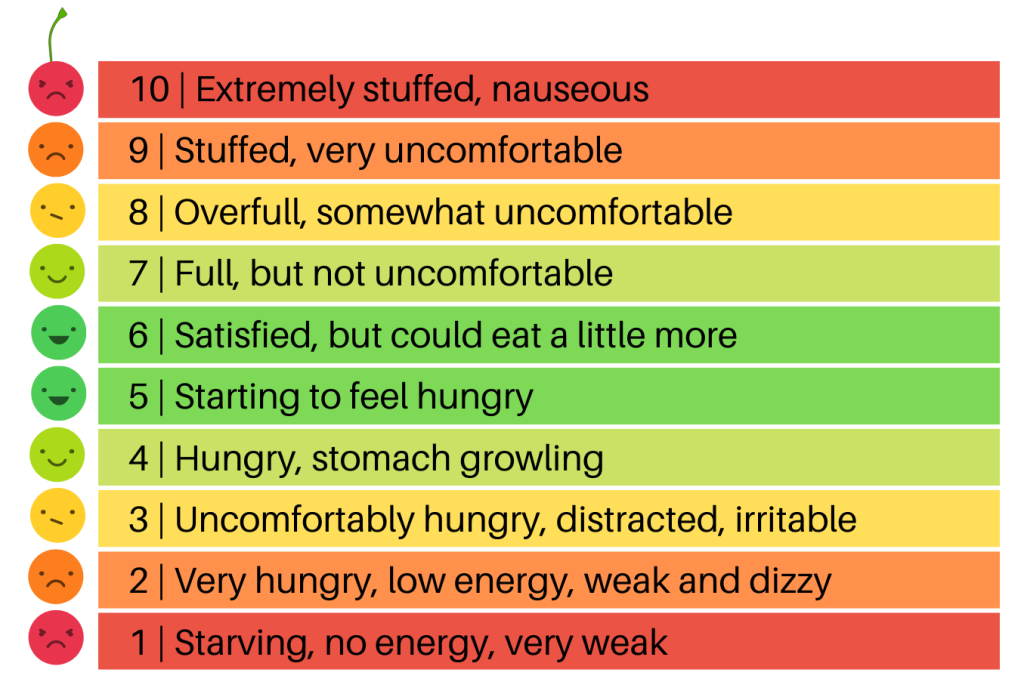Keep your body well fed
What does this even mean? We need enough calories and carbohydrates to function and thrive, but counting calories is not the answer. From the time we are born, we are hard-wired to eat when we are hungry and stop when we are full. These cues are controlled by our brain and hormones. Hunger is the body’s way of ensuring survival, but diet culture teaches us that hunger is something shameful to be overcome.
Slowly, most of us have become disconnected from our body's signals, and we fight to eat according to a set of rules that we set for ourselves.
The trouble is, the more we restrict ourselves and deny our bodies adequate food, the more we trigger a desire to overeat.
The Hunger Satiety Scale
Try using this Hunger Satiety scale - which was put together by UHS Berkley - to get in touch with your hunger and satiety cues. Aim to stay within the green zone, 4-7, as much as possible.

Aim to start eating when you reach a 3-4, which may make it easier to thoughtfully choose what you’d like to eat, and eat until you are satisfied rather than overly stuffed.
Once you reach a 6, you're nearly satisfied, and will likely be at a 7 soon. Check in with your hunger cues before and during meals, and take your time while eating by engaging all of your senses.
Trust your body's hunger cues
By rediscovering (and trusting) our bodies’ cues to eat when we are hungry, the better the connection we create with ourselves (see podcast link below to learn more). Hunger cues can be different for everyone: a grumbling stomach, headaches, shakiness, and feeling hangry!
This week, take some time to observe your own bodies’ signals:
- Do you feel like you're often at 1, 2 or 3 on the hunger scale? Try adding a snack between meals, which could help you stay within the green zone. Hint: Combining two types of foods will increase your satisfaction. Think apples and peanut butter, crackers and cheese, yogurt and granola. More ideas here.
- How does your hunger affect your mood? Do you get hangry?
- How does your hunger change based on your stress levels, sleep, or activities?
- Does your hunger feel comfortable, uncomfortable, or neutral?
Some more resources


BEFORE YOU GO: This program is not a replacement for eating disorder treatment. If you suspect you have an eating disorder, don't hesitate to reach out to Erin (see below), or any other trusted health professional for support and guidance.
Connect with us!
UBCO’s Registered Dietitian, Erin, is here to help!
And for nutrition tips, recipes, and more, visit the UBCO Food Services Nutrition Blog.








